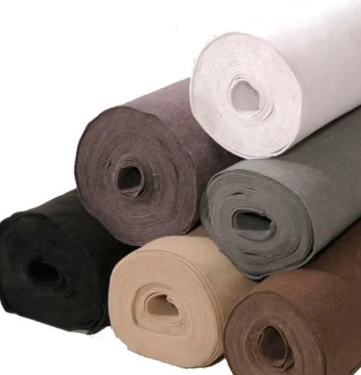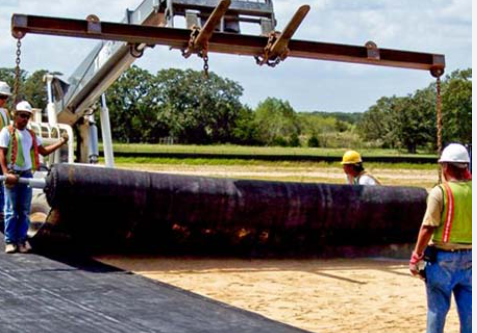- Understanding the Role of Geomembrane Liners in Waste Management
- Innovations in Geomembrane Liners for Water Management
- Geomembrane Liners: A Comprehensive Guide
- The Future of Geomembrane Liners in Civil Engineering
- Geomembrane Liners: Enhancing Landfill Stability
Manager:Alvin Wang
WhatsApp:+62 8983806051
Tel:+86 10-5797-1075
Email:steelwang@okorder.com
Address:3rd Floor, No.2 Building, No.1 Sanlihe Road
What are geotextiles for soil improvement?
One of the soil improvement techniques used in modern engineering and construction projects is geotextile. It has been realized that there are several options of Geotextiles under consideration which include wholesale geotextile, polyester geotextiles, filament geotextile, geotextile slope protection and stabilization. In order to make the best out of these different soil enhancement practices, it is important to know what their roles and applications entail.

Introduction to Geotextiles
Geotextiles refer to synthetic materials essentially made from polymers such as polypropylene, polyester or polyethylene which serve as versatile reinforcements on soil-related works. They are engineered with special physical and mechanical properties meant to withstand various environmental conditions and stresses. Different types of these textiles such as woven, non-woven and knitted have been designed depending on specific requirements of a given project.
Wholesale Geotextile: Cost-Effective Soil Enhancement
In large-scale soil improvement projects wholesale geotextile is a more cost-effective approach. Wholesalers purchase these items in bulk quantities hence they sell them at reduced prices thus making it an attractive option for contractors who work on vast areas of land during development process. The quality and performance standards remain the same as those of retail products thus assuring customers reliable services concerning soil stabilization and erosion control at very competitive price ranges.
Polyester Geotextiles: Durability and Versatility
Polyester geo-textiles provide long lasting reinforcement solutions in soils improvement practices. These geo-textiles consist of high-strength polyester fibers that have an exceptional tensile strength coupled with resistance against UV degradation which makes them ideal for use in different climatic conditions over a long period-of-time. This robustness allows them to effectively reinforce soil structures; contribute towards erosion control as well filtration thus creating durable infrastructure projects capable of withstanding various disturbances.
Filament Geotextile: Strength and Stability
Filament geotextiles are the best in demanding soil stabilization. They are made of continuous filament yarns which provide high tensile strength in addition to puncture resistance hence enabling them to perform well in critical applications such as slope stabilization and retaining wall construction. The lasting impact of filament geotextiles on the other hand is shown through their ability to reinforce soil structures and mitigate erosion hazards even in difficult terrains.
Geotextile Slope Protection: Erosion Control and Stability
Geotextile slope protection systems are important for protecting slopes from eroding thus maintaining stability on vulnerable landforms. These systems prevent soil erosion effectively by installing geotextile layers along slopes, erosion control blankets or mats that promote vegetation growth hence preserving the view of the landscape with minimal environmental impacts. To this end, slope management using geotextile slope protection methods guarantees long-term stability as well as resilience.
geotextile slope stabilization: Reinforcement and Support
For unstable slopes, reinforcement is provided by geotechnical engineers through use of various techniques among them being geosynthetic reinforcement like geogrids or geotextile mats. By so doing, these stabilizing methods improve the structural integrity hence reducing chances for landslide occurrence besides avoiding damage from erosion taking place within it. Prevention measures using geo-textiles stabilize what would otherwise have been a very dangerous situation; this promotes safety as well as sustainability in various areas of civil engineering.

Conclusion
Geotextiles are a key component in soil improvement; they offer numerous solutions that help to enhance soil stability, control erosion, and manage slope. The retail geotextile alternatives are inexpensive choices for large-scale constructions; however polyester and filament geotextiles bring toughness and robustness to arduous applications. Geosynthetics have been useful in preserving the integrity of slopes thus providing some effective slope protection techniques against erosion hazards. They can derive long-lasting ecofriendly infrastructures withstanding all challenges by adopting the use of this kind of textile material."






